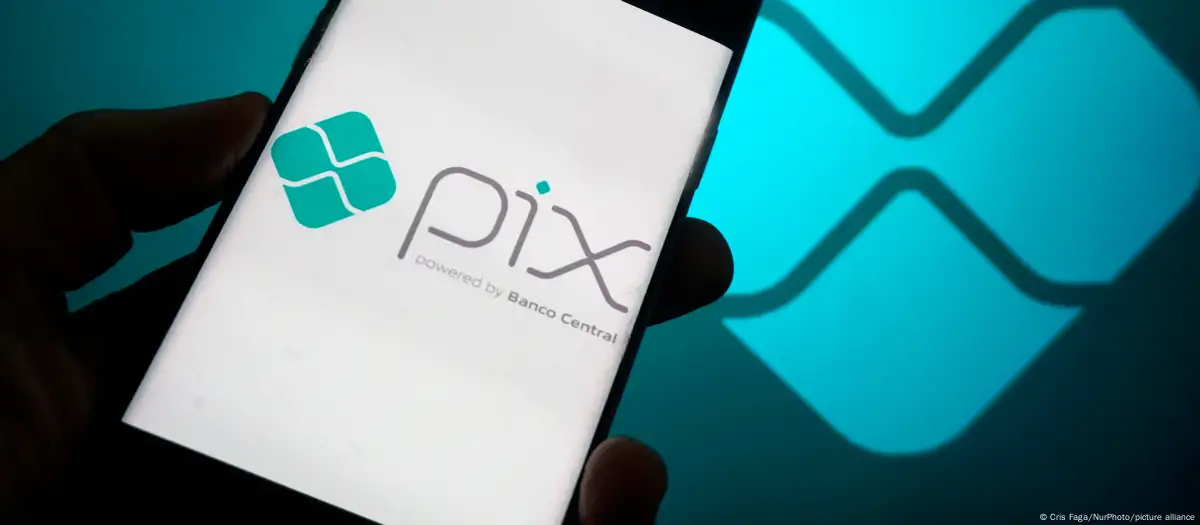
Most of payment is today the most used in Brazil, occupying potential space for US card operators and systems. Central Bank decision against WhatsApp Pay may have been fuse for dispute.
Commercial investigation against Brazil opened on Tuesday (15/07) by the United States government, under President Donald Trump, aims several practices that the White House has described as potentially “unfair”: obligations and fines against American social networks, Brazilian trade agreements with Mexico and India and tariffs applied to ethanol, among others.
However, none of them had as much repercussion among Brazilians as the mention of an alleged unfair practice with “means of electronic payments created by the government” – the pix.
The investigation was opened under section 301 of the US trade legislation, which covers “acts, policies or practices of a foreign country that are uncovered or discriminatory and harm or restrict US commerce.”
The report of the federal agency responsible for US international trade (USTR) states that these means of payment could harm “the competitiveness of US companies that operate in digital commerce and electronic payment services.”
Market dispute
So far, USTR has not specified why an electronic payment method created by the Brazilian government could be an unfair practice against the US.
Since its launched, PIX has abocated a considerable portion of a market dominated by credit or debit cards, such as Mastercard and Visa, both based in the US, and by electronic payment systems such as Google Pay and Apple Pay, as well.
However, according to analyzes published in the Brazilian media, one of them in Mariana Barbosa’s column on the UOL portal, the main reason for the inclusion of PIX in American investigation would have involved issues related to Meta -owned WhatsApp Pay, commanded by American billionaire Mark Zuckerberg, who approached the White House after Trump’s return to power.
WhatsApp Pay was initially launched in Brazil in June 2020 – the first country in the world to receive the service – to allow transfers and purchase payment by WhatsApp, the most widespread messaging application among Brazilians.
Money transfers between users were free, but product purchase operations involved a 3.99% rate of the amount, charged from the merchant.
WhatsApp Pay suspension
The week following the launch of the Goal System, however, the Central Bank – which was in the final phase of Pix – and the Administrative Council for Economic Defense (Cade) determined the suspension of WhatsApp Pay in Brazil.
The Central Bank stated at the time that the objective was to “preserve an appropriate competitive environment, which ensures the operation of an invoicable, fast, transparent, open and cheap payment system” and that “the eventual start or continuity of operations without the prior analysis of the regulator could generate irreparable damage to the SPB notably regarding competition, efficiency and privacy of data”.
Already Cade pointed out that Cielo, which would do the technical operation of transactions via WhatsApp Pay, could further reinforce its market position and pose risks to competition. “This basis would be difficult to create or replicate by Cielo competitors, especially if the investigation agreement involves exclusivity between them,” he said.
WhatsApp Pay was initially released in June 2020, before Pix | Sebastian Kahnert/ DPA/ Picture Alliance
The Pix was eventually released in November 2020, five months after the WhatsApp suspension, and quickly became one of Brazilians’ favorite means of payment without involving the payment of fees.
According to the Central Bank, at the end of 2024, 76.4% of Brazilians used the system, which became the most used means of payment in the country.
WhatsApp Pay, in turn, was authorized and began to make financial transactions only in March 2021 – when the pix had already won the preference of Brazilians.
One of the doubts that can be raised in the American investigation is whether the Brazilian Central Bank would have improperly used its power to impair a private platform that would be competing to Pix.
USTR opened on Thursday the deadline for receiving comments on the investigation against Brazil, and a public hearing is scheduled for September 3 in Washington.
Brazilian government rebukes investigation
In a publication on social networks on Wednesday, the official profile of the Planalto Palace defended Pix.
“Pix is from Brazil and Brazilians. It seems that our pix has been causing a darn jealousy outside, see? There is even a letter complaining about the existence of our safe, confidential and without fees,” wrote the Brazilian government in the publication.
“But Brazil is what? Sovereign. And it is very proud of the more than 175 million Pix users, which is already the most used means of payment by Brazilians,” he added, endorsing the favorable speech to Lula’s sovereignty after Trump taxed Brazilian products by 50%.
Vice President Geraldo Alckmin, who has been cast by Lula to lead negotiations with the White House, also defended Pix in a meeting with entrepreneurs on Wednesday.
To journalists, Alckmin said the payment system is a “success” and that Brazil will explain to point the questions listed in US commercial investigation.
Originally published by DW on 07/17/2025
Source: https://www.ocafezinho.com/2025/07/17/por-que-trump-esta-mirando-o-pix/

